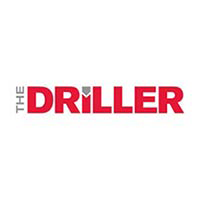News
Canada’s aluminum and mining industries aren’t happy about the latest tariffs from the U.S.
Read More
Corpus Christi Turns to Drilling as Water Runs Low
By 2030, this stretch of coast will face a water shortfall of nearly 28 million gallons per day if alternate supplies are not developed
Read More
China Tightens its Grip on Metal Exports
Drilling materials like tungsten and indium are under fire by new tariffs.
Read More
Chicago State University and the EPA Look to the Future
The unique partnership is all about giving students real-world experience, mentorship, and career support
Read More
SLB and Star Energy Geothermal Join Forces
SLB announced a partnership with Star Energy Geothermal, a subsidiary of Indonesia’s Barito Renewables
Read More
25% Steel and Aluminum Tariffs: Domestic Steel Remains Strong
On Monday, President Trump announced more potential tariffs.
Read More
EPA Delays Adding PFAS Substances to ‘Toxic Release Inventory’
Trump memo requiring review of new regulations is the reason for the delay, EPA says
Read More
Lawmakers Demand Accountability from EPA Leaders Amid Funding Freeze
Legislators reaffirmed their commitment to opposing the Trump administration’s policies they believe threaten environmental protections.
Read More
Bedrock Energy Secures $12M to Expand Geothermal in the Mountain West
An Austin-based geothermal startup landed funding set to fuel its growth and expand in Colorado, Utah, and nearby states.
Read More
Mission Geo: Unleashing the Power of Geothermal Energy
The new initiative aims to bring awareness and knowledge about geothermal energy
Read More
Dig deeper into the drilling and water supply industry!
Build your knowledge with The Driller, covering the people, equipment and technologies across drilling markets.
SIGN UP NOWCopyright ©2025. All Rights Reserved BNP Media.
Design, CMS, Hosting & Web Development :: ePublishing











